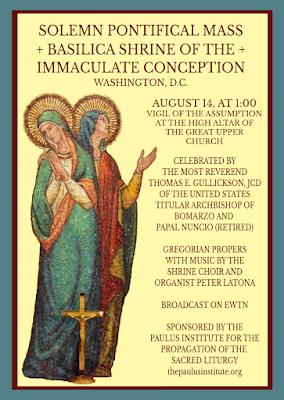After faithful of the abolished FSSP mission in Dijon came to complain in front of the Archdiocesan office building, on June 26, Abp. Roland Minnerath came to talk to them and had ominous menacing words.
From Paix Liturgique:
"You will have a new motu proprio in the upcoming days or weeks," Abp. Minnerath, Archbishop of Dijon, said on June 26 to the faithful of the Traditional Mass who came to display their discontent before the archdiocesan building. [Rorate: this declaration is on video]
But even before the publication of this text, if it comes to be published, the testimonials on the intentions of the enemies of the previous motu proprio, that of Benedict XVI, grow:
- Cardinal Parolin, the Secretary of State, affirmed thus before a group of Cardinals: "We must put an end to this mass forever!"
- And Abp. Roche, new Prefect of the Congregation for Divine Worship, explained, while laughing, to those responsible for [some] seminaries in Rome and members of the Curia, all English-speaking: "Summorum Pontificum is practically dead! We will give back to the bishops power on this matter, but particularly not to conservative bishops.”
It must be known additionally that Abp. Minnerath, who opened the hostilities against the traditional community of Dijon, is a member of the Congregation for the Doctrine of the Faith [Rorate: curently in charge of the application of Summorum] and due to this is present every month in Rome, surrounded by the Curial milieux that have prepared the offensive against Summorum Pontificum. [Source]
















